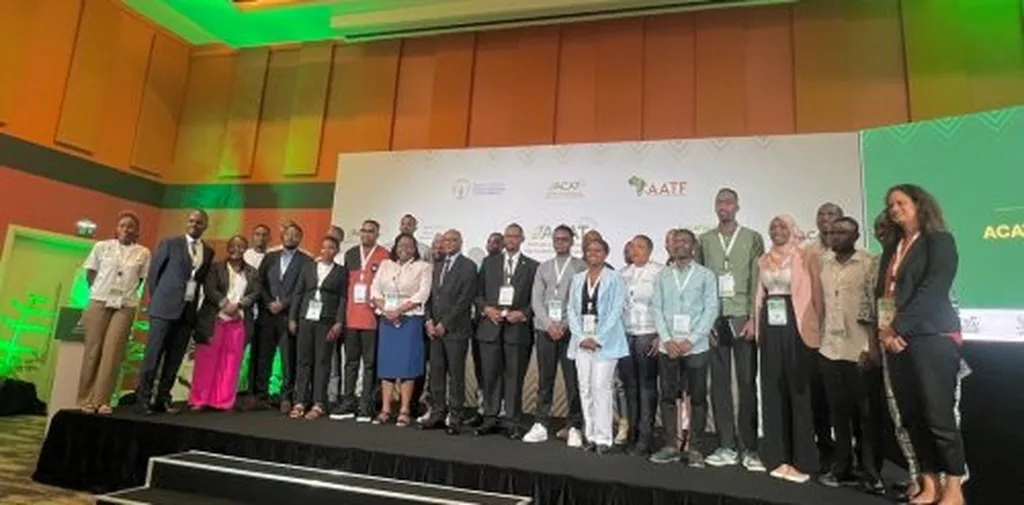The Federal Government, in collaboration with the Leonard and Nkiruka Okorkwo Foundation (LANOF), Heinrich Böll Foundation (HBF), and other stakeholders, unveiled the revised **National Youth Manifesto in Agriculture (2025–2030)** on Tuesday in Abuja—a strategic document designed to position young Nigerians as key drivers of the country’s agricultural transformation.
The manifesto, alongside the **2025 Nigerian Youth in Agribusiness Call to Action**, outlines a youth-owned roadmap for modernizing agriculture, ensuring food security, and creating sustainable employment. Speaking at the event, Senator Abubakar Kyari, Minister of Agriculture and Food Security, emphasized that the initiative marks a shift from viewing youth as mere policy beneficiaries to recognizing them as architects of Nigeria’s agricultural future.
Represented by Mrs. Safina Abdullah, Deputy Director of Planning and Policy Coordination, Kyari highlighted the manifesto’s eight priority areas: **agroecology and climate resilience, access to land and inputs, youth-responsive finance, market access, research and agritech innovation, capacity development, gender inclusion, and mentorship**. These priorities align with existing national frameworks, including the **National Agriculture Technology and Innovation Policy (NATIP 2022–2027)** and the **revised National Gender Policy in Agriculture (2025–2030)**.
The ministry pledged to integrate the manifesto into its strategic plans, ensuring its implementation through structured mechanisms like the **Nigeria Youth in Agribusiness Forum (NYAF)**. Kyari also announced plans to develop a **National Youth in Agribusiness Strategy**, modeled after the **African Union’s African Agribusiness Youth Strategy (AAYS)**, to institutionalize youth participation in agriculture.
**A Youth-Led Movement for Agricultural Change**
Nkiruka Okorkwo, Co-Founder of LANOF, described the manifesto as both a **policy advocacy tool and an empowerment mechanism**, designed to build a resilient, inclusive food system. Unlike previous top-down approaches, this document was co-created by young farmers and agripreneurs across Nigeria’s six geopolitical zones, ensuring it reflects their real-world challenges and aspirations.
The manifesto’s strength lies in its **bottom-up development**, with youth at the forefront of shaping policies that affect them. It outlines clear pathways for **youth leadership in agribusiness**, from access to finance and digital tools to capacity-building and gender-inclusive practices. However, its success will depend on **multi-sectoral collaboration**, long-term investment, and sustained political will.
Sophie von Knebel, Country Director of HBF, commended the initiative, urging young Nigerians to take ownership of the agricultural sector. Similarly, Blessing Akhile of ActionAid Nigeria reaffirmed her organization’s commitment to **inclusive agriculture**, stressing the need to translate the manifesto’s vision into tangible action.
**Implications for Nigeria’s Agricultural Future**
The revised manifesto arrives at a critical time. With Nigeria facing **food insecurity, climate change pressures, and youth unemployment**, the document presents a structured approach to harnessing the energy and innovation of young agripreneurs. If implemented effectively, it could:
– **Boost youth employment** by creating opportunities in agribusiness, from farming to agri-tech and value-chain development.
– **Enhance climate resilience** through agroecological practices and digital innovation.
– **Improve access to finance and markets**, reducing barriers for young farmers.
– **Strengthen gender inclusion**, ensuring women and marginalized groups play a central role in agricultural growth.
However, the real test will be **execution**. Past agricultural policies in Nigeria have often struggled with implementation gaps due to funding constraints, bureaucratic delays, and inconsistent political support. For this manifesto to succeed, stakeholders—government, private sector, and development partners—must **align resources, monitor progress, and hold each other accountable**.
The call to action is clear: Nigeria’s youth are ready to lead. The question now is whether the system will empower them to do so.

